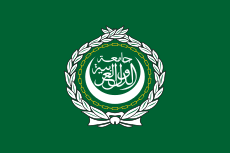Arab Brazilian
|
Notable Arab Brazilians: Carlos Ghosn · Luciana Gimenez · Paulo Maluf R. Abdenur · Daniella Sarahyba · G. Kassab Tony Kanaan · Afif Domingos · Glauco Arbix Arnaldo Jabor · Geraldo Alckmin · F. Haddad · José Maria Alkmin · Juliana Paes · Sabrina Sato | |
| Total population | |
|---|---|
|
over 11 million | |
| Regions with significant populations | |
| São Paulo, Minas Gerais, Rio de Janeiro, Goiás, Rio Grande do Sul | |
| Languages | |
| Portuguese, Arabic | |
| Religion | |
|
Predominantly Christian with Muslim minority | |
| Related ethnic groups | |
| Other Arabs, Arab American, Arab Canadian, Lebanese Canadian, Lebanese Australian, Arab Argentine, Portuguese Brazilians |
An Arab Brazilian is a Brazilian citizen of Arab ethnic and/or linguistic heritage or identity. The majority of Arab Brazilians trace their origin to the Levantine lands of the Arab World, known in Arabic as Bilad al-Sham, primarily Lebanon and Syria.
Immigration to Brazil
Immigration of Arabs to Brazil started in the late 19th century, most of them coming from Lebanon and Syria, later from other parts of the Arab world. When they were first processed in the ports of Brazil, they were counted as Turks because they carried passports issued by the Turkish Ottoman Empire that ruled the present day territories of Lebanon and Syria.[2] There were many causes for Arabs to leave their homelands in the Ottoman Empire; overpopulation in Lebanon, conscription in Lebanon and Syria, and religious persecution by the Ottoman Turks. Arab immigration to Brazil grew also after WWI and the rest of the 20th century, and concentrated in the states of São Paulo, Mato Grosso do Sul, Minas Gerais, Goiás, and Rio de Janeiro.
Most Arab immigrants in Brazil were Christians, Muslims being a minority. Intermarriage between Brazilians of Arab descent and other Brazilians, regardless of ethnicity or religious affiliation, is very high; most Brazilians of Arab descent only have one parent of Arab origin. As a result of this, the new generations of Brazilians of Arab descent show marked language shift away from Arabic. Only a few speak any Arabic, and such knowledge is often limited to a few basic words. Instead the majority, especially those of younger generations, speak Portuguese as a first language.
Arabic influence in Brazil
Arab immigration has influenced many aspects of Brazil's culture - besides and beyond the Arabic influence inherited via Portugal, as, for instance, some Portuguese words of Arabic origin.
In the main Brazilian cities it is easy to find restaurants that cook Arab food; and Arab dishes, such as sfihas (Portuguese esfirra), tabbouleh (Portuguese tabule), kibbeh (Portuguese quibe), hummus, tahina and halwa are very well known among Brazilians.
Most Arab immigrants in Brazil have worked as traders, roaming the vast country to sell textiles and clothes and open new markets. This economic history can be seen today in the ways that the São Paulo-based Arab Brazilian Chamber of Commerce has gained greater recognition in increasing Brazilian exports to the Arab world.[3]
Arab-Brazilians are well integrated into Brazilian society. Today, only a minority of Arab Brazilians still know and speak the Arabic language, the vast majority of them being monolingual Portuguese speakers.
Many important Brazilians are of Arab descent, including important politicians such as Paulo Maluf, Geraldo Alckmin, Gilberto Kassab, Michel Temer and José Maria Alkmin, artists, writers (for instance Raduan Nassar) and models.
Notable Arab Brazilians
- Adib Domingos Jatene, physician
- Amyr Klink, sailor
- Antônio Houaiss, writer and philologist
- Arnaldo Jabor, film director, screenwriter and producer
- Alfredo Saad-Filho, economist
- Tania Khalill, actress
- Branco, football world champion
- Carlos Ghosn, businessman (current CEO of Renault and Nissan)
- Bruna Abdullah, Hindi and Tamil language film actress
- Daniella Sarahyba, model
- Carlos Latuff, Political cartoonist
- Edmond Safra, banker
- Alberto Dualib, businessman
- Fernando Gabeira, politician
- Rafael Leitão, Brazilian chess grandmaster
- Fernando Haddad, politician and the current mayor of São Paulo
- Geraldo Alckmin, the current Governor of São Paulo
- Gilberto Kassab, politician and the former mayor of São Paulo
- João Bosco, musician
- José Maria Alkmin, politician, former Vice-President of Brazil under Castello Branco
- Luciana Gimenez Morad, model and TV entertainer
- Malu Mader, actress
- Marcelle Bittar, model
- Mário Zagallo, football player and coach world champion
- Michel Temer, politician, current Vice-President of Brazil under Dilma Rousseff
- Paulo Maluf, politician
- Raduan Nassar, writer
- Sabrina Sato Rahal, model and TV entertainer
- Tasso Jereissati, politician
- Tony Kanaan, race car driver
- Wallid Ismail, martial artist, World class Brazilian jiu-jitsu practitioner, famous for choking Royce Gracie unconscious
See also
References
- ↑
- ↑ Recopilaron casi 200 años de los sirio libaneses en Argentina
- ↑ Karam, John Tofik. 2007. Another Arabesque: Syrian-Lebanese Ethnicity in Neoliberal Brazil. Philadelphia: Temple University Press.
| ||||||||||||||||||||||||
| ||||||||||||||||||||||||||||||||||||||||||||||||||||||||||||||||||||||||||||||||
















